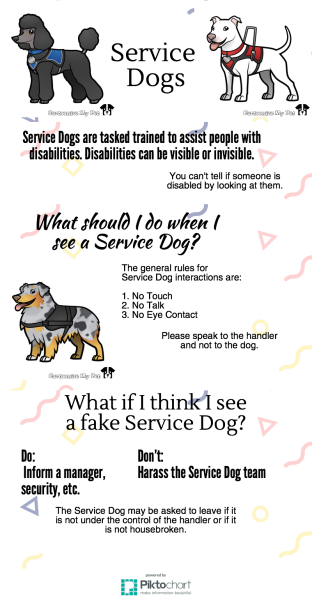Where Can I Adopt A Dog
Where Can I Adopt A Dog
Blog Article
Can Canine Childcare Reason Disease?
Canines in daycare obtain lots of exercise, socializing with various other canines and distinct experiences. This can be particularly handy for pups and canines with behavioral concerns.
There are a number of lawful factors to consider you require to take into account when starting a doggy day care company. These consist of the framework of your organization and conformity with federal government regulations.
1. Canine Distemper
Canine distemper is spread with straight contact with the physical liquids and waste of a contaminated pet, yet it can also be transmitted through shared water and food bowls or through airborne droplets. This extremely infectious health problem is most harmful for young puppies, however it can influence pet dogs of any kind of age and is deadly for a lot of if left unattended.
First signs and symptoms of canine distemper commonly simulate an acute rhinitis, consisting of dripping eyes and nose with watery or pus-like discharge. As the condition proceeds, a pet will certainly establish high temperature, coughing, minimized cravings, throwing up and looseness of the bowels. The infection can additionally strike the nerves, causing seizures, shivering and partial or full paralysis.
Trustworthy childcares lower direct exposure to infection by calling for inoculations, regular health examinations and adhere to rigorous hygiene procedures. If your pup seems overly tired or hopping, a day off might aid him recoup, however you must prevent taking him back to day care until these symptoms clean up.
2. Kennel Cough
Kennel coughing, additionally called contagious canine tracheobronchitis or Bordetella, is an extremely infectious viral or bacterial disease that influences the respiratory system system. It's typically transferred through the exchange of saliva or air beads that an unwell pet dog exhales. Social canines are at greater danger for infection because of their frequent communication with each other, such as when they play, share food or water, sniff one another or merely fulfill in a congested environment like a pet park or childcare.
The most common signs and symptom of kennel coughing is a consistent and powerful cough that seems like something embeded the throat or retching. Frequently, dogs will certainly spend frothy white phlegm. If left unattended, a pet dog can establish pneumonia and be at significant danger for life.
A reputable childcare facility should have rigorous cleaning and sanitation methods, sterilize all toys, food and water bowls on a regular basis, and be open regarding their vaccination plans. Maintaining your canine approximately date on their vaccinations, especially for bordetella and canine influenza, will greatly lower their opportunities of contracting the illness.
3. Parvovirus
Canine parvovirus, or parvo, is a very contagious viral ailment that can be lethal for puppies and young person canines with poor body immune systems. It's most typically spread out by direct contact with infected pet dog feces-- which can happen when pet dogs sniff, lick, or preference infected feces-- and indirectly from infected people, things, or atmospheres (like kennels, grooming spaces and grass). Puppies and canines without total inoculation histories are specifically vulnerable to parvo.
The infection is very resilient, enduring in the atmosphere for approximately nine years, and can conveniently be moved between pet dogs by contact via feces or on shoes, garments, and bedding polluted with parvovirus. If not dealt with instantly with IV liquids, electrolyte balance, throwing up control medications and anti-biotics to prevent second bacterial infections, a pet dog will rapidly dry out and develop serious looseness of the bowels, overnight dog boarding near me which causes shock and sepsis. Parvo is tough to cure when a pet has ended up being ill, yet with proper vet care, several puppies do endure this ailment.
4. Dog Flu
Canine influenza infection is highly transmittable and spreads through direct call, sharing food and water bowls, licking or nuzzling other pet dogs, through airborne beads, and through polluted surface areas. Vaccination works in reducing the danger of infection and episodes.
Most impacted pets develop a moderate respiratory system infection with a cough that lasts 1-3 weeks. They may additionally have nasal and eye discharge, sneezing, and lethargy. A few of the most severe instances result in pneumonia and a high fever.
If your pet dog shows any of these signs, do not bring them back to childcare until they are healthy. If your pet dog is showing signs of severe exhaustion or limping, speak with your veterinarian right away and ensure they get on good health supplements to help develop their resistance. A vet will assess your pet for symptoms of the flu by taking an example from the nose or throat, and blood examinations can be done to validate.